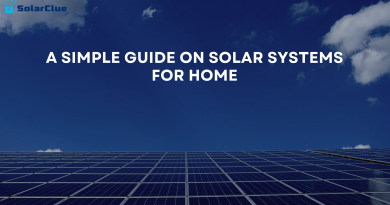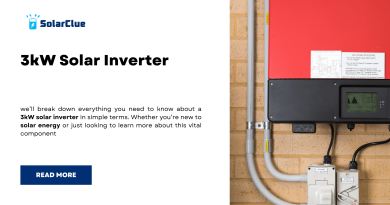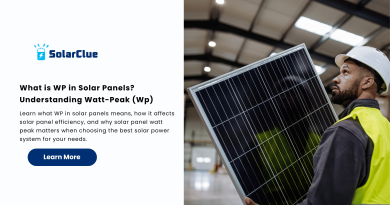Can You Plug Into A Solar Panel
Solar panels are a popular source of renewable energy, but using their power directly without the appropriate system components can lead to significant risks and inefficiencies. This blog explores why simply plugging an appliance or device directly into a solar panel is not advisable and highlights the critical role of additional system components such as inverters and batteries.
Table of Contents
- 0.1 The Limitations of Direct Connections to Solar Panels
- 0.2 The Role of Inverters and Batteries in Solar Power Systems
- 0.3 Safety Considerations for Direct Connections
- 0.4 The Risks of Electrical Shock and Potential Damage
- 0.5 Proper Installation Procedures for Solar Panels
- 0.6 Alternative Methods for Using Solar Power
- 0.7 The Future of Solar Technology and Its Potential for Direct Power Delivery
- 0.8 Case Studies of Unsuccessful Direct Connections to Solar Panels
- 0.9 The Importance of Consulting a Professional for Solar Panel Installation
- 1 FAQ
The Limitations of Direct Connections to Solar Panels
Directly connecting devices to solar panels without any intermediaries can result in unstable power delivery due to the variability in solar energy production. This variability is influenced by factors like cloud cover, time of day, and the angle of sunlight, which can lead to insufficient or excessive voltage and current.
The Role of Inverters and Batteries in Solar Power Systems
- Inverters: Convert the DC electricity generated by solar panels into AC electricity, which is the standard used by most household appliances and the grid.
- Batteries: Store excess power generated during peak sunlight hours, making it available for use during low light conditions or at night, thus stabilizing energy usage.
Safety Considerations for Direct Connections
Direct connections to solar panels can pose serious safety risks, including the risk of electrical shock or fire. Solar panels produce DC electricity, which can be especially dangerous if not properly handled.
The Risks of Electrical Shock and Potential Damage
- Voltage Fluctuations: Direct connections can expose devices to unregulated voltage fluctuations, potentially damaging electronic components.
- Improper Grounding and Wiring: Increases the risk of short circuits, which can lead to fires or electric shocks.
Proper Installation Procedures for Solar Panels
Installing solar panels involves more than just mounting panels; it includes setting up protective equipment, proper electrical wiring, and ensuring all components are compatible and safely installed.
Alternative Methods for Using Solar Power
Using solar power effectively typically involves integrating inverters, charge controllers, and battery storage systems to ensure that the power supply is stable, efficient, and safe.
The Future of Solar Technology and Its Potential for Direct Power Delivery
Advancements in solar technology may one day allow for safer and more efficient direct power applications, but currently, the use of intermediate devices remains essential.
Case Studies of Unsuccessful Direct Connections to Solar Panels
Real-world examples highlight the dangers and inefficiencies of attempting to use solar power without the necessary system components and safeguards.
The Importance of Consulting a Professional for Solar Panel Installation
Professional installation ensures that solar power systems are safe, efficient, and compliant with local electrical codes and regulations.
FAQ
Q1: Can I directly plug my appliance into a solar panel to save on installation costs? A: No, direct connections can be unsafe and inefficient. Proper system components like inverters and batteries are necessary to regulate and safely use the power.
Q2: What can happen if I ignore the need for an inverter and connect directly to a solar panel? A: This can lead to unstable and unsafe power delivery, potentially damaging your appliance and posing a risk of electrical shock.
Q3: Are there any safe ways to use power directly from solar panels? A: While there are some applications designed for direct DC power use, these are typically engineered with built-in voltage regulators and safety features. Standard household appliances should not be connected directly to solar panels.
Q4: What should I do if I want to install solar panels at home? A: Consult with a professional solar installer who can design a system tailored to your energy needs and ensure all components are installed safely and efficiently.
By understanding these limitations and risks, individuals can better appreciate the importance of using the correct equipment and installation practices when setting up a solar power system, ensuring safety, efficiency, and reliability.



